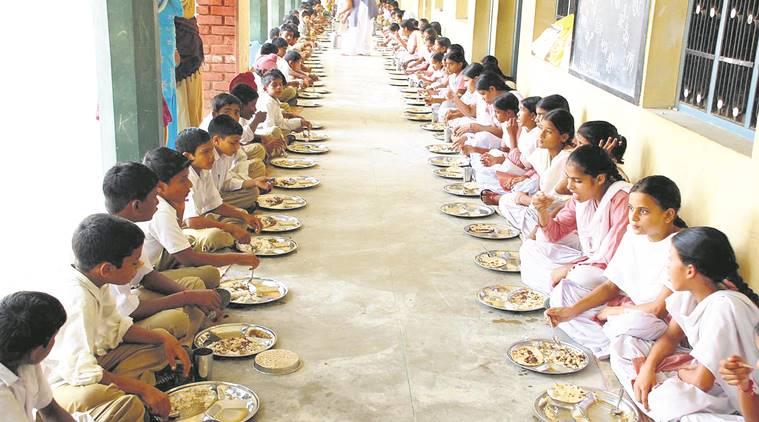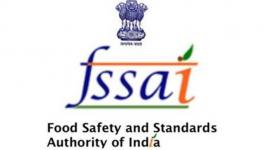Scrounging on Mid-Day Meals in India’s Bread Basket

Representational image. | Image Courtesy: StudentEpaper
The mid-day meal scheme, which runs in schools with the assistance of the central government, is in crisis in Punjab. Funds required for the scheme are not being released by the central and state governments. In March, after schools were closed due to the Covid-19 pandemic, the Supreme Court took suo moto cognisance of the non-availability of fresh cooked meals for students and issued notices to states and Union Territories. The Punjab Education Department then assured that it would send rations to the homes of students entitled to mid-day meals. The cost of cooking the food was also to be credited into the students’ accounts.
The responsibility to pack the meals and deliver it to children was handed over to the cooks who used to prepare the food and teachers. This was to be done for 24 days. The children are no longer getting these rations, nor has the government paid the cooks their salary.
During the lockdown, Prime Minister Narendra Modi announced a Rs.20 lakh crore package, but neither rations nor remuneration reached those who need them. According to the Punjab Education Department’s order, the packets of rations that were supposed to reach students’ homes between 23 March and 15 April would have supplied 1.2 kg of rice or wheat per day to students of classes I to V. Students of classes VI to VIII were to get 1.8 kg rice or wheat packets daily. In addition, the daily per-student cost of cooking was calculated Rs. 4.48 for primary-level students and Rs.6.71 for students of classes VI to VIII.
From May onwards, the central government hiked the cost of cooking to Rs.4.97 per student for primary sections and Rs.7.45 for upper primary students. Now the lockdown is supposedly over and yet schools remain closed. During the lockdown, the central government released money for about 13 lakh children who are entitled to mid-day meals in government and government-aided schools in Punjab from the first to eighth grades. The food grain for this scheme are provided by the Food Corporation of India, a central government agency, while funds are to be provided to the state government for management of the scheme. The arrangement under the scheme is that 60% of the funding is by the Centre and 40% by the state government.
But after 15 April, after the first 24 days, the Punjab government provided neither ration nor the cost of cooking to the children. The mid-day meal scheme was implemented after a long struggle so that children of poor families could attend school where they would get nutritious freshly-cooked food.
Now because the necessary funds for the scheme have not been released, it has become difficult for the teachers in Punjab to keep it running. Their unpaid bills worth lakhs of rupees have piled up with the state government. For the last five months, the women cooks have also not been paid their allowance for face masks under the scheme. The ration shops are owed lakhs of rupees too. In the last financial year, the Punjab government budgeted for Rs.238 crore to be spent under this scheme, but a large part of it was not released due to the financial crisis.
Government officials are now saying the reason the funds have not been released is cumbersome bureaucratic processes, and transfers or retirement of the officials required to do this work. Punjab Education Minister Vijay Inder Singla says that the ration that has come from the Center has been distributed, and if more comes it will be disbursed too; that there is no delay on part of the state government. The state government alleges that it is the central government which is also responsible for the funds which have not been given to the mid-day meal cooks.
According to the information received, the Education Department has issued a letter to the teachers asking why the cooking cost was not deposited into the children’s accounts. Most of the teachers, instead of depositing a nominal amount (around Rs. 107) in banks, say they delivered it to the children at their homes. The reason is that the announcement that Rs.500 would be credited in the Jan Dhan accounts has led to rushes in banks. People waiting for this money violate the physical distance rules of Covid-19. Therefore, in this situation, it was not feasible for children or their parents to go to banks to deposit or withdraw just about Rs.100.
Mid-day meal cooks are probably the least paid section in the government system. Punjab has 43,000 such cooks, who are paid Rs.1,700 a month. The wages for the two months’ school vacation are deducted from their annual salaries. Harjinder Kaur Lopo, president of the Democratic Mid-Day Meal Cook Front Union, says when all other government employees get their salaries the holiday period, cooks should also get paid. The salaries for April and May, the lockdown period, were also not paid to the cooks. Lopo says that the cooks could not organise a big agitation or demonstration due to the lockdown, but they sent demand letters to the government, which it conveniently ignored.
The mid-day meal scheme is very beneficial to students from poor families. More than 21 lakh students of 15,335 government and government-aided schools in Punjab are served lunch under this scheme. The benefit of the scheme goes basically only to the poor and backward students. According to a government survey, 51% of the beneficiaries of this scheme are from the Scheduled Castes and 46% of the children are from backward classes. Only 3% of the students of other classes benefit from this scheme. The study also reveals that 70% of the parents of the children who access the mid-day meal are labourers, and 50% of these parents are illiterate. Only 23.74% of their parents have studied up to class V, and only 15.68% are middle-school pass-outs.
Prof. Bawa Singh, a renowned educationist from Punjab, says, “This is not just a matter of depriving poor students of food, but of disrupting their education, because the ability to study is directly related to health. Many poor people send their children to schools with the desire to see them get one full meal a day. The government should know that if the students are hungry then their efforts to study will also fail. The continuation of the mid-day meal scheme is important from the point of view of welfare and it is in the national interest in terms of education and health.”
That is why it is even more unfortunate that this important scheme has reached the verge of closure in Punjab—a state that calls itself the granary of the country.
The author is a freelance journalist. The views are personal.
Get the latest reports & analysis with people's perspective on Protests, movements & deep analytical videos, discussions of the current affairs in your Telegram app. Subscribe to NewsClick's Telegram channel & get Real-Time updates on stories, as they get published on our website.


















